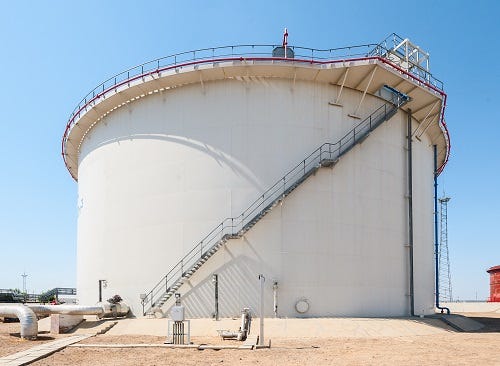Update to OSHA's PSM Regulation. Part 4: Atmospheric Storage Tanks
The United States Occupational and Health Administration (OSHA) is proposing to update its Process Safety Management (PSM) standard. This post is the fourth in a series in which we discuss some of the proposed changes. OSHA’s proposal document is Process Safety Management (PSM): Stakeholder Meeting.
To this point we have discussed the proposed changes in general. We now start to look at some of the specific issues raised by OSHA.
OSHA has divided the proposed changes into two areas: (1) Changes in scope, and (2) Changes to the management and technical elements (“particular provisions”). In this post we look at the first of the items in the Changes in scope section.
Clarifying the exemption for atmospheric storage tanks
Soon after the process safety standard went into effect a dispute arose as to whether atmospheric storage tanks are covered.
Note: this discussion is to do with the OSHA regulation. The EPA RMP rule on this topic is more stringent.
The relevant section of the standard falls under Purpose. (a) Application (1)(ii). It is the section that defines a ‘covered process’. It reads,
(ii) A process which involves a flammable liquid or gas (as defined in 1910.1200(c) of this part) on site in one location, in a quantity of 10,000 pounds (4535.9 kg) or more except for:
. . .
Flammable liquids stored in atmospheric tanks or transferred which are kept below their normal boiling point without benefit of chilling or refrigeration.
In 1995, the Meer Corp. in New Jersey faced numerous citations under the PSM standard (29CFR1910.119). The company challenged some of these citations on the basis that OSHA was overreaching when applying the PSM standard to its atmospheric storage tanks. (Secretary of Labor v. Meer Corp., OSHRC Docket No. 95-0341). There is no need to delve into the details of this suit except to recognize that clarification was needed then, and is needed now.
It is likely that the updates will involve careful consideration of existing API (American Petroleum Institute) standards.
Meaning of the Word “Process”
Keep reading with a 7-day free trial
Subscribe to Net Zero by 2050 to keep reading this post and get 7 days of free access to the full post archives.



